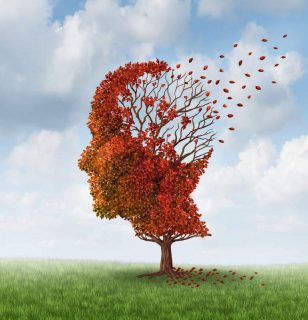The neurodegenerative disease known as Alzheimer’s currently has no treatment. The most noticeable effects of this disease are memory loss and disorientation. Alzheimer’s disease causes a slow but steady loss of mental capacity, making even routine chores difficult or impossible to complete.
Understanding Alzheimer’s For Better Outcomes
A person with Alzheimer’s disease may gradually lose the ability to respond to their surroundings. This includes the ability to hold a conversation. Also, it’s the leading culprit behind senior citizens’ deteriorating mental faculties.
According to the Alzheimer’s Association, this condition is responsible for between 60% and 80% of all cases of dementia. Read more about this condition on YourDementiaTherapist.com. Take a look at the symptoms and treatment options for Alzheimer’s Disease.
Symptoms of Alzheimer’s Disease
People usually first notice that they are having trouble recalling new information. This symptom could be mild at first, leading some to brush them off as simple forgetfulness or the natural deterioration of memory that comes with aging.
This forgetfulness will grow more pronounced over time as Alzheimer’s disease advances. People may also start displaying other symptoms, such as: having increasingly challenging times remembering things:
- Changes in behavior and temperament
- Confusion
- Trouble Expressing Oneself
- Problems with sequences of steps
- Disorientation
- Mood swings
- Issues with recalling recent past events, times, and locations
- False Suspicion
- Inquiring multiple times
- Problems falling asleep
- Issues with swallowing
- Having difficulty recognizing friends and loved ones
- Difficulty in Moving Around
- The state of being lost or aimless
These symptoms are not typically indicative of Alzheimer’s disease. You should see a doctor to find out the root of the problem.
The progression of the disease is reflected in a spectrum of symptoms. Patients with advanced Alzheimer’s disease typically have severe difficulties communicating, moving around, and reacting to their environments.
Treatment Options for Alzheimer’s Disease
Treatments may reduce the disease’s course and make life with Alzheimer’s easier, but no cure is currently available. A doctor’s recommendation for treatment will be based on how far along the condition is.
The disease’s progression can be slowed, and cognitive and behavioral symptoms treated with the help of drugs available today.
-
Slowing Clinical Decline
The FDA has approved the intravenous therapy medication Aduhelm (aducanumab) to treat Alzheimer’s disease. It helps by eliminating amyloid plaques in the brain, which it seeks out and destroys. Reducing these plaques may, according to the FDA, prevent cognitive deterioration.

Lightspring/Shutterstock
-
Boosting Cognitive Symptoms
Inhibitors of acetylcholinesterase raise levels of acetylcholine, a neurotransmitter. Several of the symptoms of Alzheimer’s disease may be caused by low levels of acetylcholine. This compound helps boost the brain’s supply of this chemical messenger, thereby improving memory.
Yes, these drugs will not slow the mental deterioration that Alzheimer’s disease causes. However, they may temporarily relieve the associated memory, language, judgment, and thinking issues.
-
Reducing Behavioral Problems
Alzheimer’s disease is associated with a wide range of emotional and behavioral shifts that might be difficult to accommodate. Therefore, people’s irritability, anxiety, sadness, restlessness, and sleep issues may worsen.
The root causes of such changes should be addressed for the best results. Some examples include issues with hearing or vision, as well as discomfort from taking medication or having another medical condition.
People can better adapt to new circumstances if they can determine the causes of their problematic behaviors and then take steps to eliminate or modify those causes. Changes in routine, such as being requested to take a shower or change out of dirty clothes, can also serve as triggers.
In many cases, the level of ease, security, and contentment in a person can be greatly improved by making certain adjustments to their immediate surroundings.
Closing Thoughts
Scientists are making progress in their quest to understand Alzheimer’s. Prevention may be possible by adopting a healthy lifestyle. Talk to your healthcare provider if there is a history of Alzheimer’s disease in your family.
Alzheimer’s disease has already reached a stage where it cannot be reversed by the time it is diagnosed. However, medication can reduce the severity of symptoms and increase comfort levels.
Suppose you or a loved one are exhibiting symptoms of Alzheimer’s disease. In that case, it is important to speak with a qualified medical practitioner. They can aid in the diagnosis, provide insight into possible outcomes, and put you in touch with available resources. They can also provide details about participating in clinical studies, should you be interested.
Who is the author?

Keith Dean
Keith Dean is an independent researcher and avid writer interested in various niches like health/fitness, business/finance, and many more. A contributor to multiple blogs and magazines, he has gained the ability to ground complex topics in simple and applicable terms.



![women [longevity live]](https://longevitylive.com/wp-content/uploads/2020/01/photo-of-women-walking-down-the-street-1116984-100x100.jpg)










